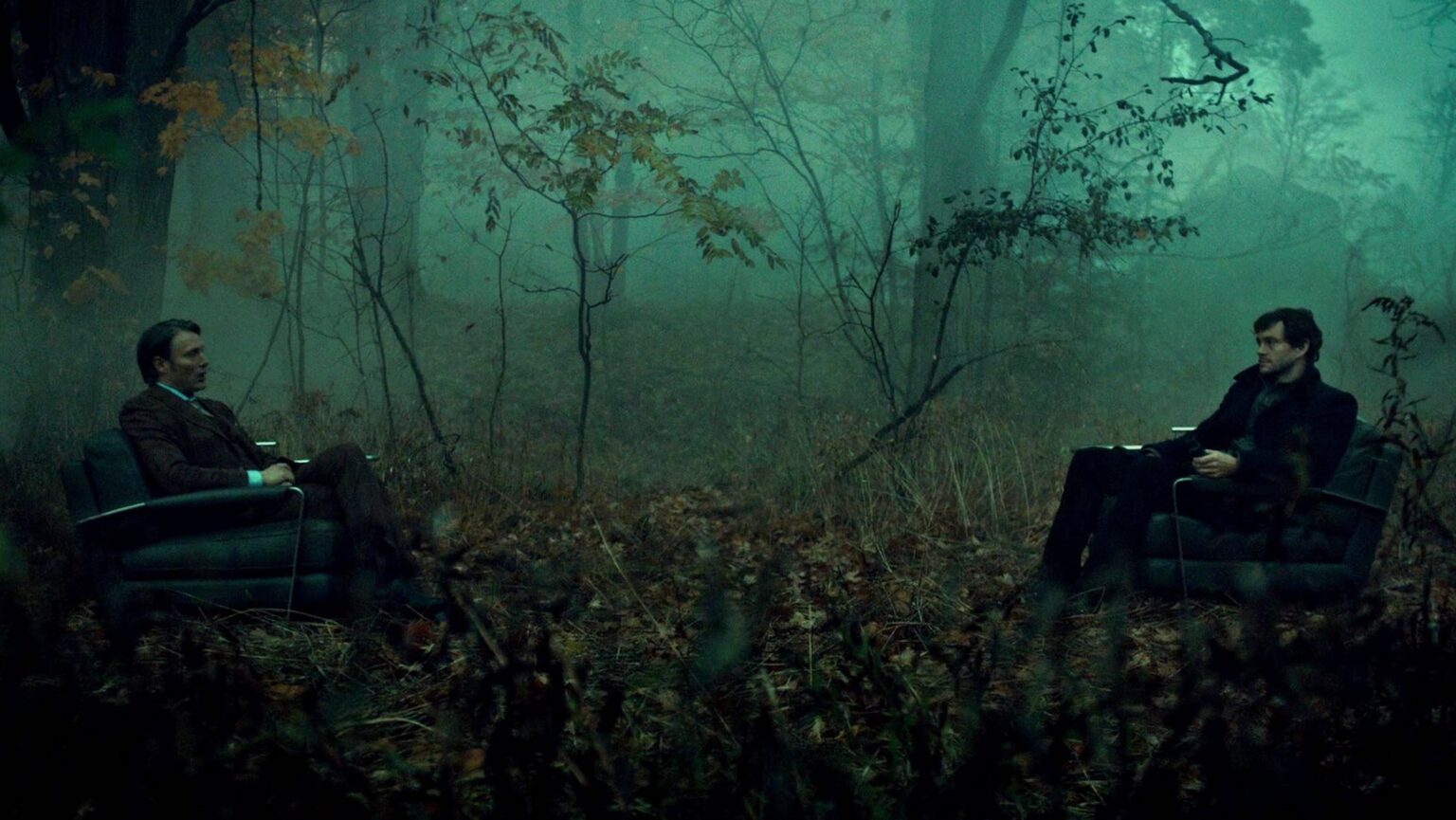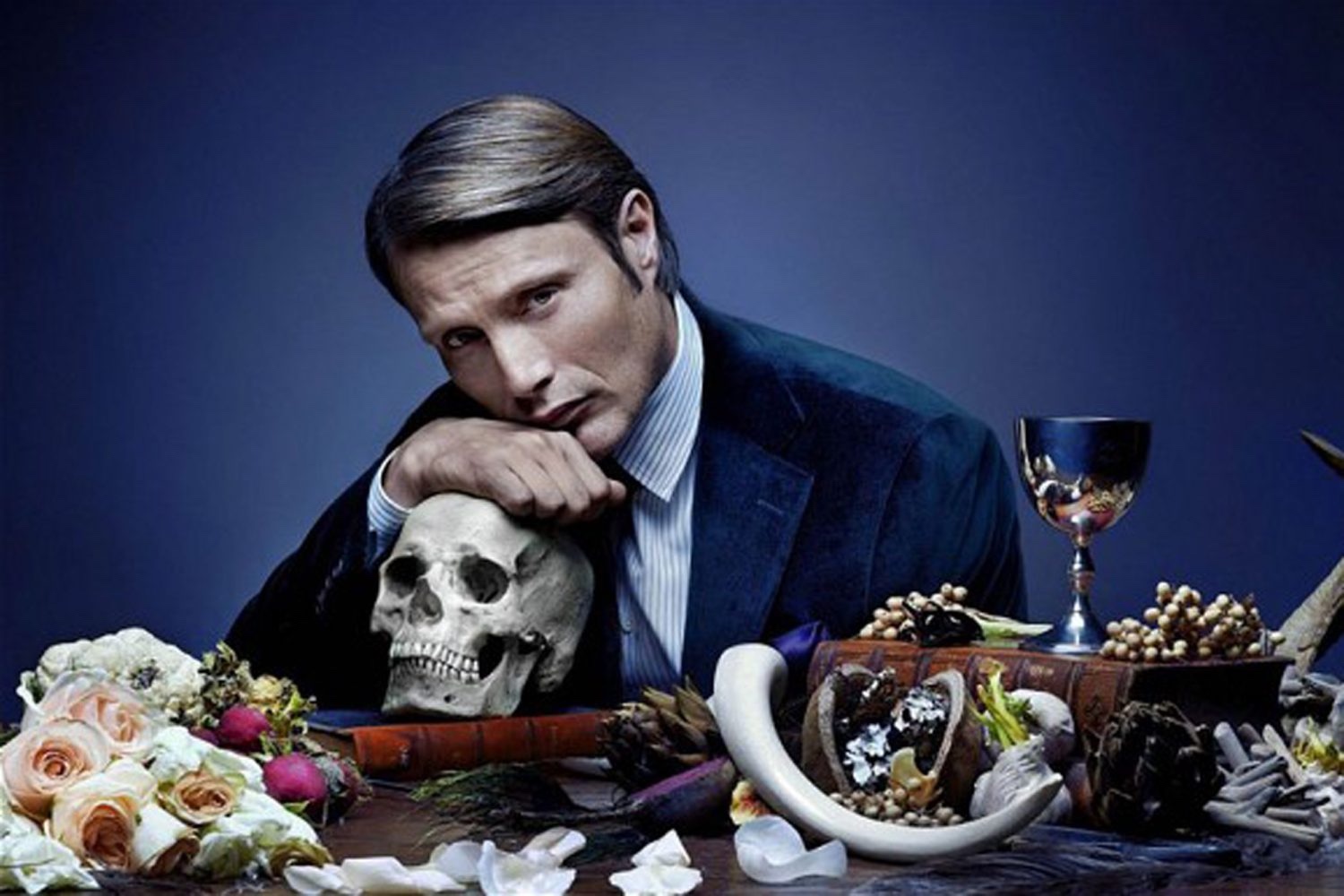
6 life lessons we learned from the NBC show ‘Hannibal’
Seductively dark, disturbingly manipulative, and artistically gruesome, the NBC TV show Hannibal is captivating on a number of levels. It has complex characters, intelligent dialogue, and mesmerizing cinematography to name just a few of its merits.
Despite these qualities, one could be skeptical that anything relevant to our daily lives can be learned from a horror-genre TV show, but Hannibal has a few take-home messages that we can all benefit from. Valuable insights shouldn’t be disregarded just because they come from the mouth of a fictional cannibal; he is, after all, a very successful psychiatrist.

1. You can still be a good person without letting other people walk all over you
Being empathetic does have its downsides, and while few of us can boast the gift/curse of Hannibal’s Will Graham, it can be hard to hold onto one’s own point of view in the face of another’s.
Understanding other perspectives is, as Hannibal might say, “a tool that is pointed at both ends”, with benefits and hazards. It can undermine your own perspectives, and then it’s not until you’re alone again that you remember your own rationale does come from somewhere: it comes from you, and you matter too.
We’re not saying never compromise, or turn a deaf ear to the opinions of others, but learn to listen to yourself as well. Learn to say no, learn to say it with planted feet & a smile.

2. Repressing your feelings only makes them stronger
Most of us have heard of mindfulness by now, and modern psychology agrees it has benefits. Taking a moment to acknowledge our thoughts & feelings gives us the ability to work through them and then release them. It’s important not to chastise yourself for feelings of anger or unexpected attraction; how we feel is not within our control – how we react to our feelings is.
The expression “bottling up feelings” says it all really: you are not exorcizing your demons, you are containing them and letting the pressure build. Perhaps if Will could have admitted to himself earlier that killing Garret Jacob Hobbs to save Abigail had felt righteous and not ugly, he would have been able to work through the emotion and move on.

3. If we learn our limitations too soon, we never learn our power
This one is directly from the mouth of Dr. Lecter, and though we should be wary of his intentions, these words ring true. Many children & young adults are stripped of their confidence before it’s properly embedded. In such cases, they can spend their lives believing they are weak.
Let’s look at the word “power” here for a minute. Often, people think that having power means the ability to influence others, or even bully them. Power is most impressive when it’s available but not employed, and it is certainly not impressive when it is used to demean others. Power over yourself is more important than power over others.
Now, let us be clear: we are not advocating murder, but let’s take murder in Hannibal as a metaphor for claiming your own power and accepting yourself. Hannibal pushes Will through his limitations, and he emerges from his chrysalis no longer perceiving himself to be weak.
4. There aren’t any monsters, there are only men
We don’t need monsters: we have humanity. Humans are capable of some truly atrocious things, but dehumanizing them by calling them monsters is an oversight, and not a very productive one. It gives the unknown greater power over us. Horror movies that don’t show the threat are always more terrifying than those that do.
You can’t win against a monster, you can’t reason with a monster; by calling a person a monster you drape them in a cloak of invincibility & weaken yourself. The purpose of fear is to identify danger, beyond that it is only a straightjacket for your mind. Fear does you no good in a truly dangerous situation, it’s better to acknowledge it & then release it – much like those repressed feelings in lesson 2.
It seems that, intellect aside, one of Hannibal’s great advantages is his lack of fear. Both Hannibal & Will recognize the humanity of these so-called monsters, but where Will tries to scour that recognition from his mind, Hannibal uses it to take control of the situation.

5. Neurodivergence should be embraced
As with Hannibal himself, Will Graham defies categorization. “My horse is hitched to a post closer to Aspergers and Autistics than narcissists and sociopaths.” This fits the neurodiversity paradigm, which moves away from pathology descriptors. The idea of a “right” type of neurocognitive functioning is a culturally constructed fiction, as flawed as the idea that there is a “right” ethnicity, gender, or culture.
Will’s prickly defensiveness comes in part from seeing too much, and in part from the reactions, people have to his “gift”. Even those who are allowed close to him fail to really accept him. Jack uses his insight ruthlessly, Alana treats him with kid gloves, and his talents make the forensics team uncomfortable.
Hannibal shows us that neurodivergence is a valuable form of human diversity. As unperturbed by the atypical as he is by the monstrous, Dr. Lecter sees something admirable in Will and goes to extraordinary lengths to convince the man to accept himself.

6. All sorrows can be borne if we put them in a story
This Hannibal nugget is particularly valuable, (thank you Chiyoh), and is an important insight into the human condition. We all live according to a narrative we construct about our place in the world. While reality may be objective, our personal realities are almost entirely subjective. Story-telling is a valuable tool for healing and mental recovery.
It is when our images of ourselves and/or the world deviate from our internal narrative that we are caused great distress & inner turmoil. To find a solution at such times, we should fuse the scientific method with the artistic approach to find our response.

Science is constantly re-assessing its position on how the world works as new facts come in and previous hypotheses are discarded in favor of more robust theories. Art tells us that each perspective has value, not just the perspective of the author/artist.
You can choose how to integrate yourself into the story of the world. Editing that story as new information comes to light does not necessitate the destruction of your previous foundations.
—
Will Graham can’t claim his own power without contradicting the socially accepted structures he has clung to throughout his life. He prefers instead to retreat from the world and not find himself in a position where he has to assert himself.
Hannibal forces him to change his narrative so that it makes space for Will to be himself. While his methods are beyond unorthodox, the Will we see at the end of Hannibal Season 3 is a far cry from the one at the start of Season 1. He can hold eye contact, he is no longer dragged in the currents of Jack & Hannibal’s whims: he has agency.
The lamb becomes the lion when he takes control of his own life, as we all must, eventually.









Julie
/
Wow, that is a useful read. I have taken notes. I particularly like the closing sentence about a lamb becoming a lion.i shall now reflect on your six lessons. ThankYOU.
August 1, 2020